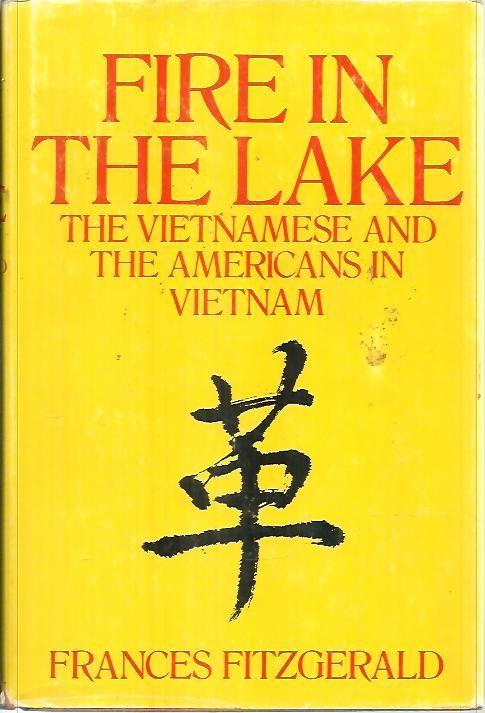Hardcover, 491 pages
English language
Published 1972 by Atlantic Monthly Press.

Hardcover, 491 pages
English language
Published 1972 by Atlantic Monthly Press.
Much has been written about American involvement in Vietnam. But Fire in the Lake Tells of the Vietnamese themselves and their struggle to find a Vietnamese solution to their problems. Frances FitzGerald describes the origins of the Vietnamese nation, its overthrow of French colonialism, the years of Diem, and the medley of generals and juntas who ruled after his downfall. Into this confusion — conflict between landlords and villagers, Communists and anti-Communicsts, Catholics and Buddhists, generals and monks — came the Americcans, with their bewildering array of soldiers, weaponry, technology, and sense of mission. Their opponents were the National Liberation Front and the North Vietnamese, who translated Marxist-Leninist theory into political practice that worked in Vietname.
In the light of Frances FitzGerald's description, we see how the Americans utterly misinterpreted the realities of the country, how they and the Vietnamese failed to understand each other's acts, motives, and even …
Much has been written about American involvement in Vietnam. But Fire in the Lake Tells of the Vietnamese themselves and their struggle to find a Vietnamese solution to their problems. Frances FitzGerald describes the origins of the Vietnamese nation, its overthrow of French colonialism, the years of Diem, and the medley of generals and juntas who ruled after his downfall. Into this confusion — conflict between landlords and villagers, Communists and anti-Communicsts, Catholics and Buddhists, generals and monks — came the Americcans, with their bewildering array of soldiers, weaponry, technology, and sense of mission. Their opponents were the National Liberation Front and the North Vietnamese, who translated Marxist-Leninist theory into political practice that worked in Vietname.
In the light of Frances FitzGerald's description, we see how the Americans utterly misinterpreted the realities of the country, how they and the Vietnamese failed to understand each other's acts, motives, and even words. The Americans found themselves shoring up the corrupt Thieu regime, protecting the heroin traffic, and wreaking destruction not only on Vietnam but on its neighbors too. The book ends with a powerful account of this "downward spiral" into a tragic tangle of political deception and human misery.